In our tenth Sighting we reflect on the ‘changing weather’ and ask how we can stem the tide and nurture more warmth, connection and positivity.
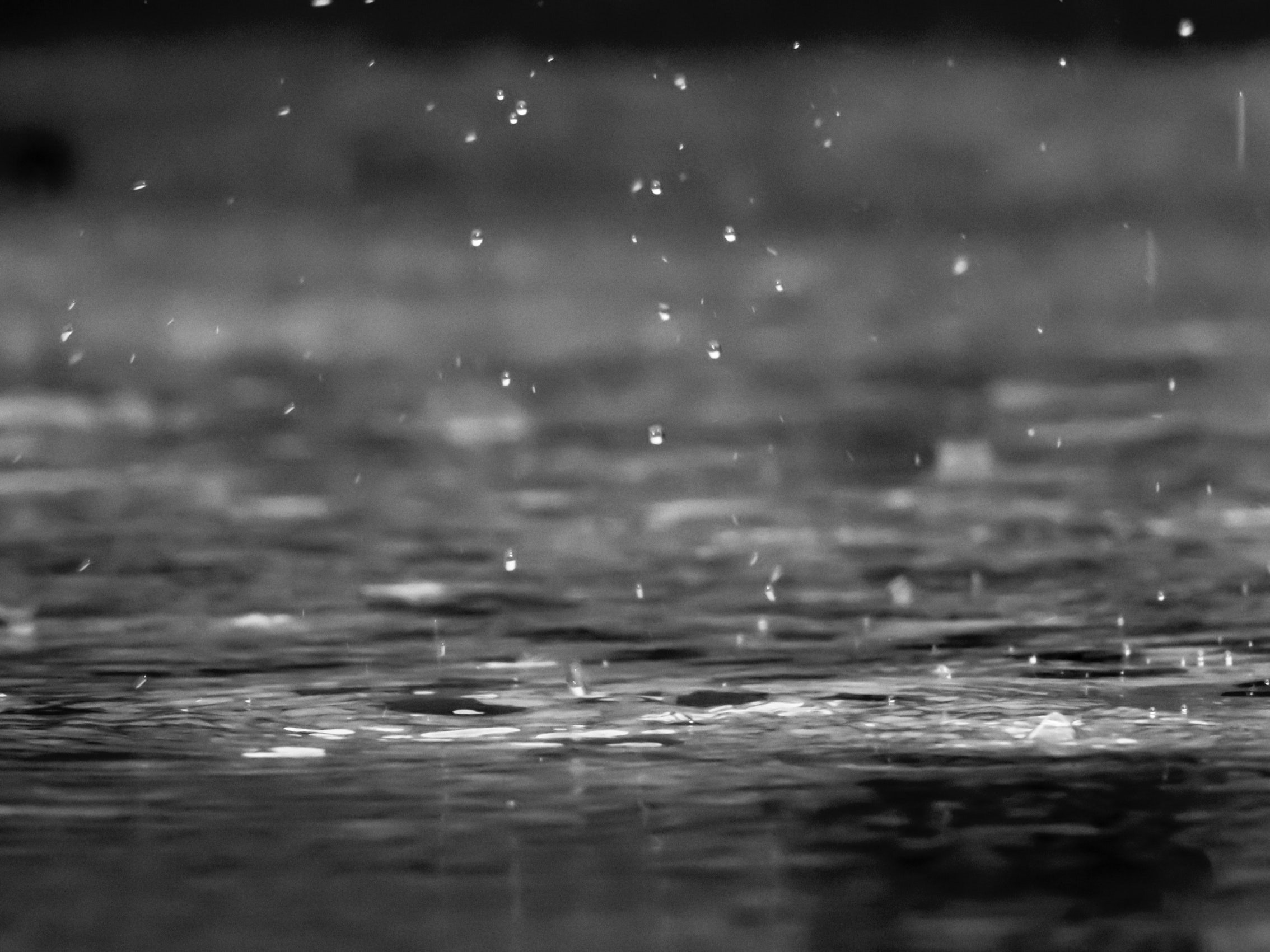
From doubting to trusting and back again?
We’ve heard how conspiracy theories that originated in the US have made their way over to the UK, pointing to a growing distrust between citizens and the state.
He continues, “We should remember that an attraction towards conspiracy theories is normally an indication of vulnerability and a lack of social identification with a powerful out-group; responding using “the facts” is unlikely to be effective – listening through the allegation in order to hear the un-met needs and responding accordingly is much more likely to build trust.”
The disillusionment phase?
Shifts in public sentiment of this kind following major disruptions are not unprecedented. SAMHSA lays out six phases of disaster, stage five being ‘disillusionment’.
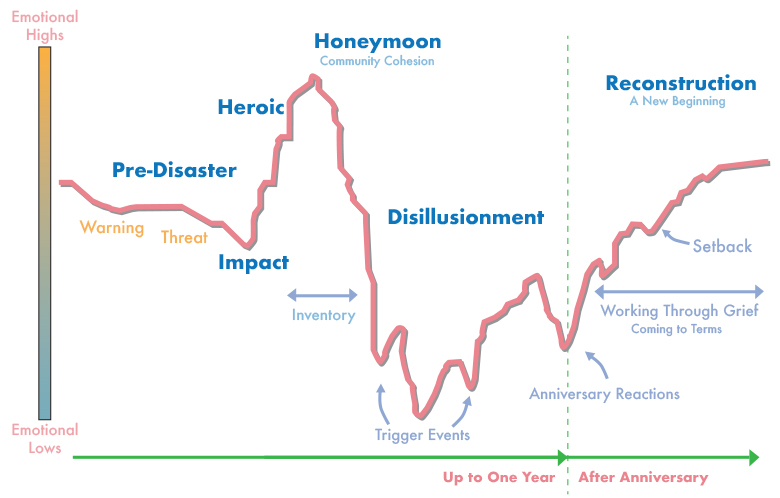
Source: SAMHSA Phases of Disaster
Back in March, April and into May we heard stories of heroism (stage three) and community cohesion (stage four). SAMHSA explains that during these phases “there is a sense of altruism, and many community members exhibit adrenaline-induced rescue behavior…disaster assistance is readily available. Community bonding occurs. Optimism exists that everything will return to normal quickly”.
The honeymoon phase is typically short lived, however, and replaced by disillusionment. “During the disillusionment phase, communities and individuals realize the limits of disaster assistance. As optimism turns to discouragement and stress continues to take a toll…The increasing gap between need and assistance leads to feelings of abandonment”.
This chimes with what we’ve been hearing lately:
Reasons to be positive
Whilst distrust, apathy, tension and scapegoating appear to be on the rise, we’ve been reminded that there are still reasons to be optimistic:
As Lockdown began they contacted Warwick hospital with an offer to deliver chemo drugs to patients’ homes as well. Four weeks later they were on the road “‘We cant be the stumbling block. We just need to make it work’ were the words of the Information Governance lead at Warwick Hospital. No DBS checks (because they weren’t needed) quick and simple telephone consent sought from patients, information shared. A loose three month agreement drawn up. ‘We don’t typically do that but they were itching to get started, and we were in the middle of an emergency. We knew some things would work and some things wouldn’t but not which ones so we just thought we can stock take as we go’ said the NHS manager who brought all the bits of puzzle together to make it happen. The can do approach flourished as a result of the pandemic and it is all going so well that another local hospital has come on board. All the Undercurrents we spotted in the Moment We Noticed – trust, collaboration, personalised provision and a can do spirit combining to brilliant effect!
Thanks to this week’s contributors
The Observatory is a voluntary collaboration led by the Relationships Project. We are dependent on the eyes and ears of our observers and partner organisations and we need more.
The voices heard this week include Diane Coles, Neil Denton, Karen Pilkington, Len Rosen, Jade Ward and Clare Wightman.
Read more

Kate – Spirit of Lockdown #6
As part of our open call to Share your Story, we received this #SpiritOfLockdown account from Kate*. Lockdown offered a Kate the opportunity to take a step back, reassess her life and reflect on the relationships that really matter to her.Setting the Scene: Life...
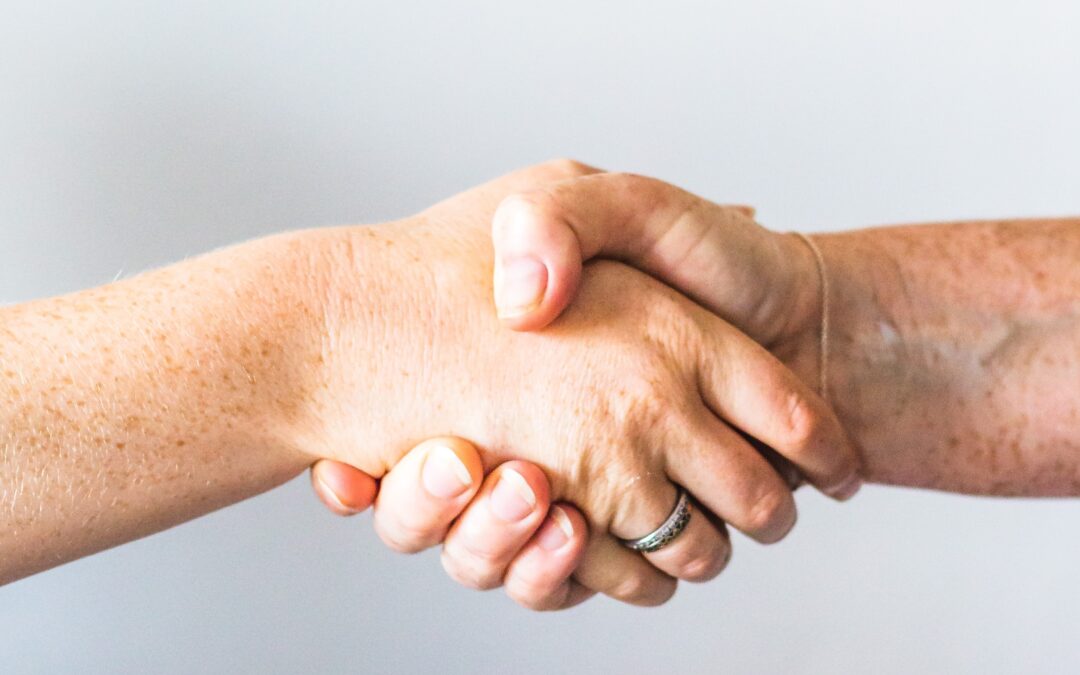
Collection from Swansea – Spirit of Lockdown #5
As part of our open call to Share your Story, we received this #SpiritOfLockdown collection from the Local Area Coordinators in Swansea. These seven people tell us about their experience and their journeys of the past turbulent year.
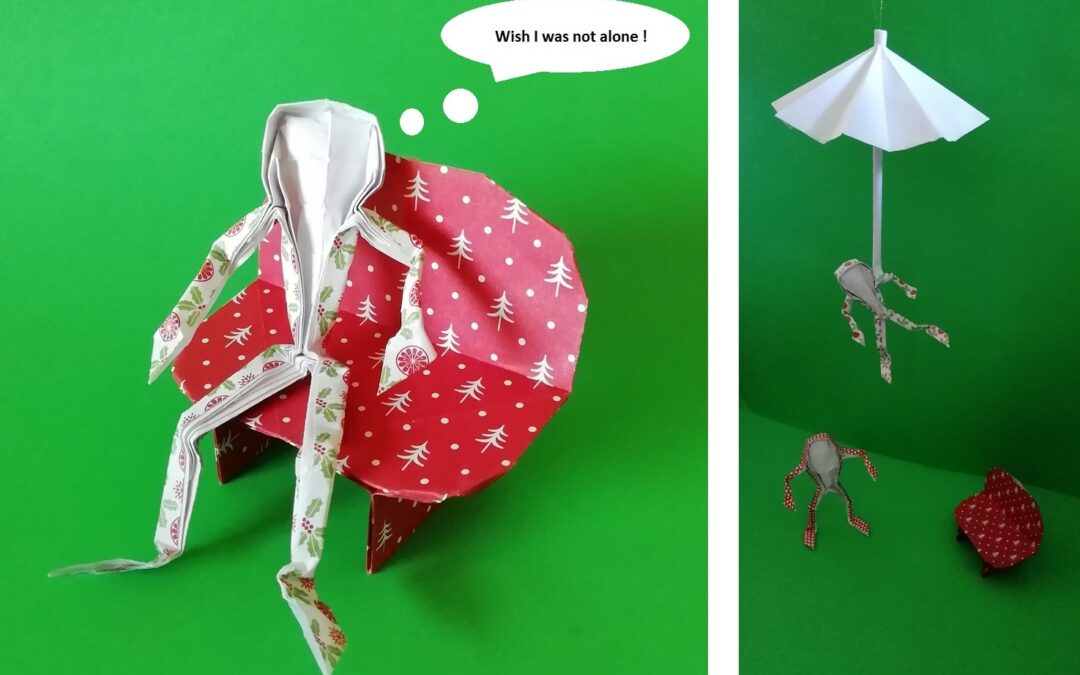
Frank – Spirit of Lockdown #4
Although he struggled with isolation and anxiety, he found ways to connect with others and get creative during this difficult time.

Observatory Sighting 13: Feeling for the future
In this first Sighting of the New Year, we are stepping back and reflecting on the emotional drivers – the feelings as well as the practical experiences that will shape the future.
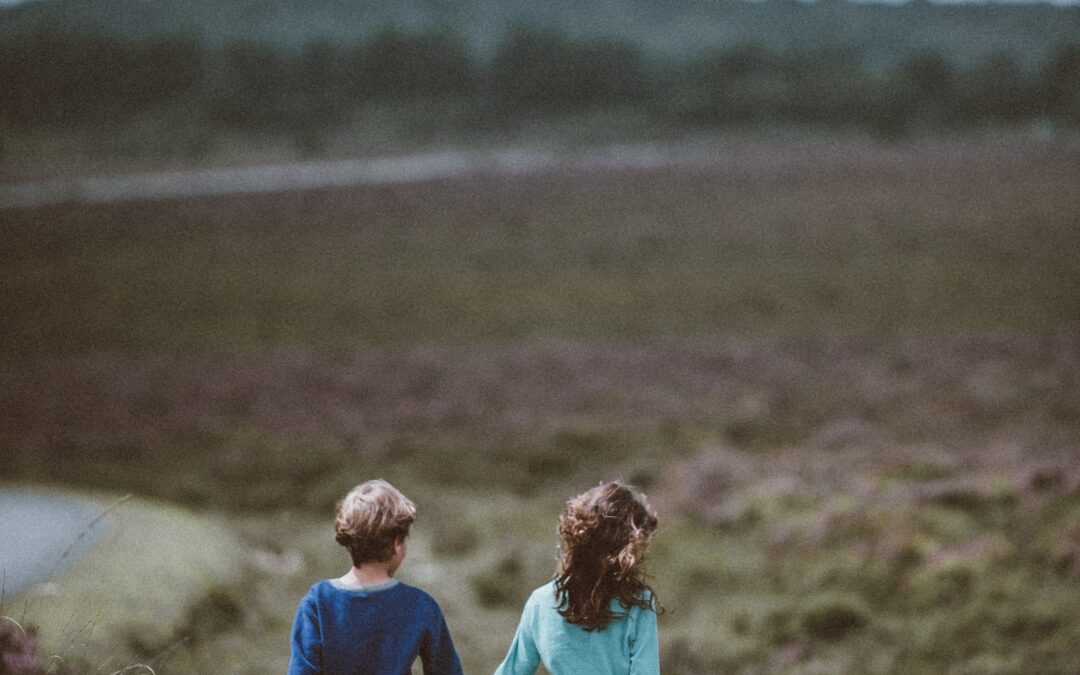
Susan – Spirit of Lockdown #3
A worry rollercoaster, friends, distance, jokes with neighbours, scared about the future and another lockdown.
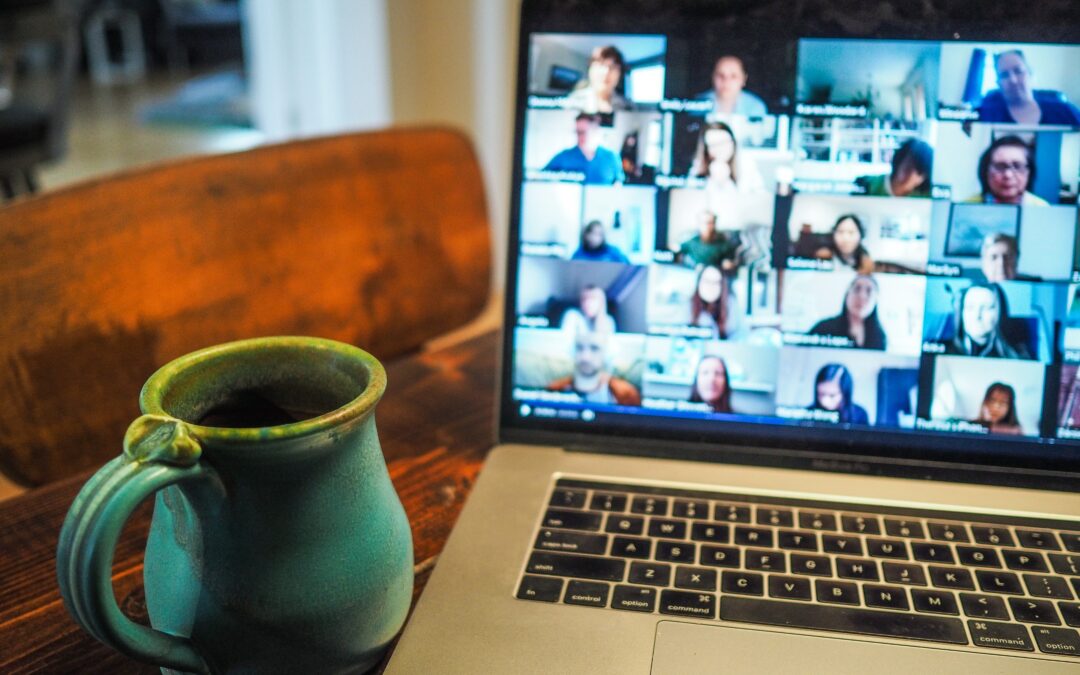
Simon – Spirit of Lockdown #2
I would like to remember the way that most of my relationships have changed for the better.
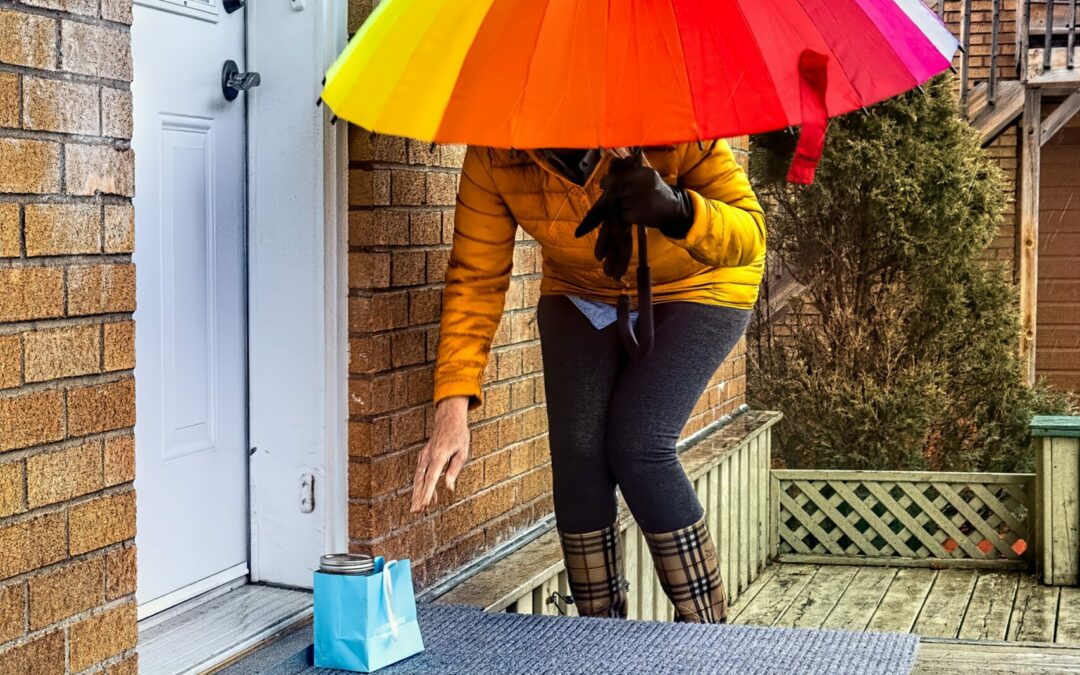
Rosalyn – Spirit of Lockdown #1
I am still worried about the pandemic but I am proud of us and what we have achieved this year.

Observatory Sighting #12: Lockdown blues
In this, our twelfth Observatory Sighting, we share stories of 'pissedoffness' and explore some of the differences between this lockdown and the last one. “Pissedoffness” might not be in the dictionary but it pretty much captures the mood amongst several of our...

The world needs a piglet
We received this piece from Linda Woolston, one of our Observers, this week. Linda found it circulating on WhatsApp. Some will love it, some won't. We thought we would share it because, this week more than ever, the world needs a piglet.Pooh woke up that...

Making it real: Councils and communities working together
In brief Continuing with the work on Developing the Framework for councils to support community action, David Robinson and Tony Clements invite you to share examples of changing council practices that 'let people in' and join the conversation about how councils can...
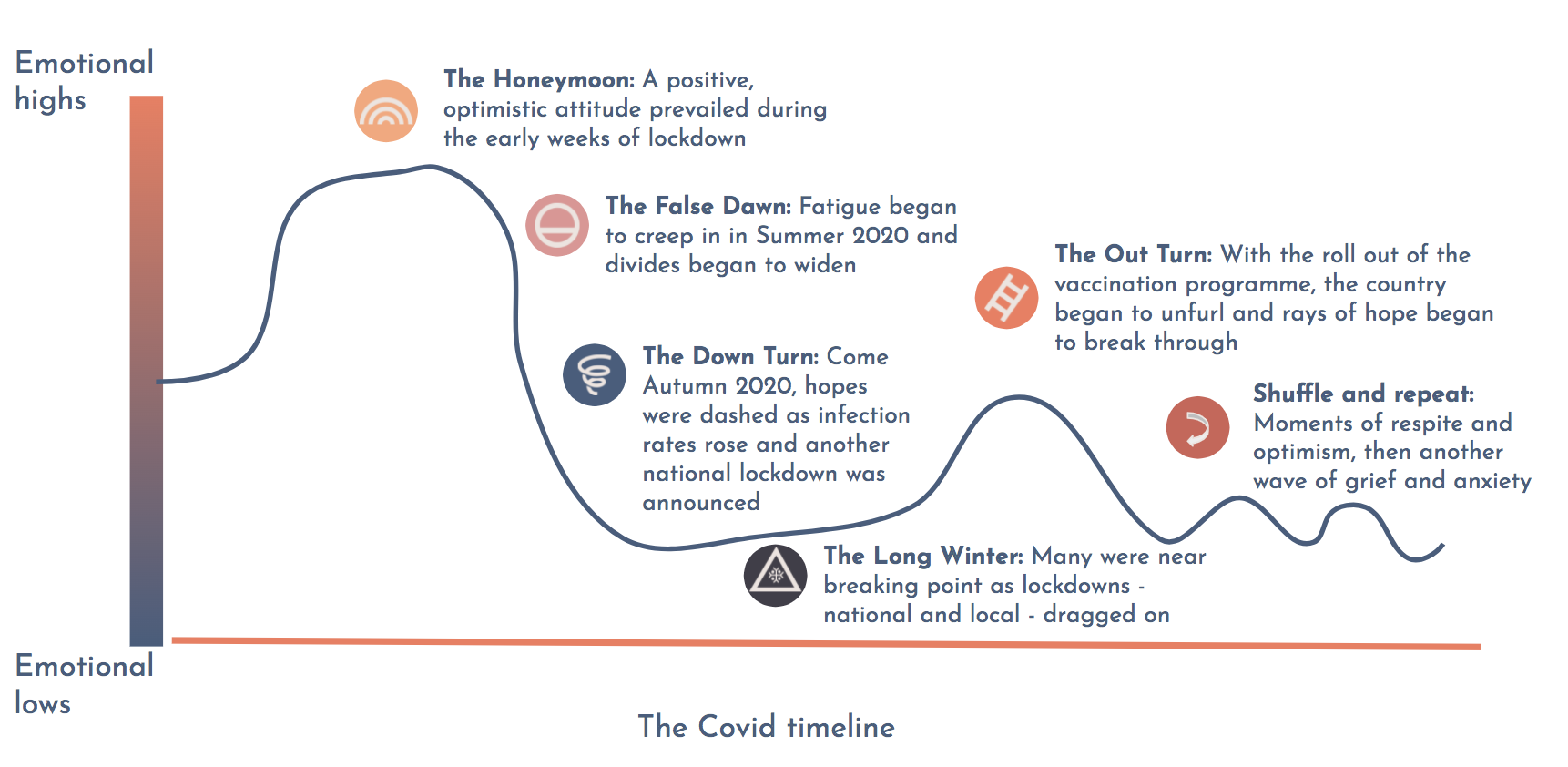
Where are we now?
In brief In this milestone blog David Robinson takes the temperature as we approach the second anniversary of Covid 19. The UK is stuck in a pattern of “shuffle and repeat” with fears for the future, but also the possibility of hope.The past two years have caused...
